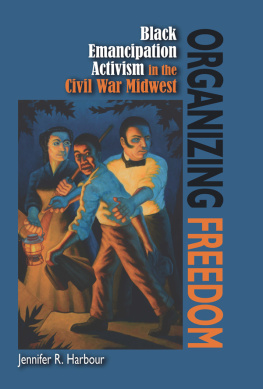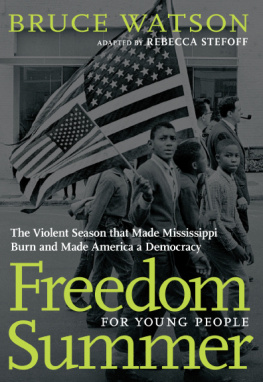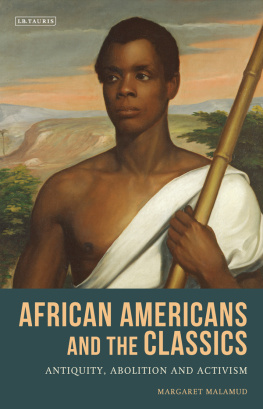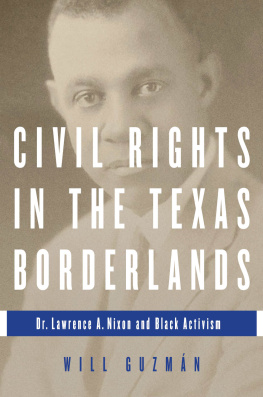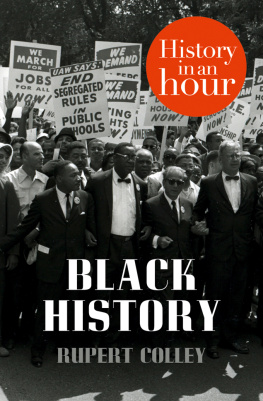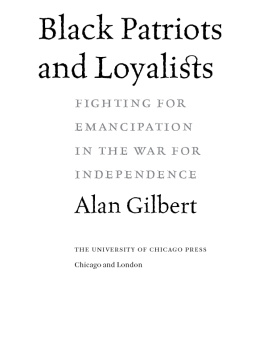Acknowledgments
We dont carry black women here. This was the bad news given to me by an archivist one oppressively hot summer day when I was a graduate student. The records at this large state-sponsored institution should have been impressive. After all, the state had allowed slavery, and I had done my research prior to making the trip. My inner monologue: Black women lived here. Thousands of them were enslaved. They must be here somewhere! Imagine my joy when, a few hours and several folders later, I found a letter written by a black woman. What the archivist probably meant to say was this: Go ahead and look, but we generally arrange Civil War materials according to battles, white male leaders, and presidents. Black women arent our priority.
Thus began five long years of research for this book, my attempt to give a voice to people who no longer have one. It is true that to unearth the daily lives of African American women and tell their story properly, one must place her faith in a combination of serendipity, mind-numbing detective skills, and pixie dust. Actually the last ingredient was delivered entirely through the good humor and endless grace of a cadre of mentors with whom I was blessed. In high school, Jack Howard found me, the kid who was bullied so mercilessly, and helped me learn that I was a valuable person. After he finished knocking some sense into me, he made me read everything from Charlotte Bront to Michel Foucault to Albert Camus to the New Yorker to Shakespeare. When I told him that I didnt understand one book hed bought for me, he simply said, Read it again. Jack took me (and Kitty) to New York City to see plays and museums, to the movies to see Thelma and Louise and foreign-language films, and he told us to be feminists. When I wasnt sure what that meant, he told me to read A Room of Ones Own and The Second Sex. Jack took us many times to Canada to attend the Stratford Festival, and the entire world opened up before my eyes. When I was done with high school, and the other kids tried to get me removed from the top ten because they said I wasnt smart enough, Jack helped me fill out my college applications and sent me on my way.
When I got to university, I met Sandra Seaton, playwright, author, and lover of all things poetic. I wasnt a particularly good writer, but Sandra took me under her wing and told me to write what you know. I did. I wrote about my grandparents, and she helped me understand the person I was becoming. Sandra introduced me to Alice Walker, Zora Neale Hurston, Audra Lorde, Octavia Butler, Lorraine Hansberry, bell hooks, Toni Morrison, and Maya Angelou. Each day after class, I would follow Sandra to her office, where shed find another play or book of poems for me to read. At the same university, I studied history with Dr. Patricia Ranft, who taught me to love primary sources and English history. If it werent for these women, I would not have had the courage to go to Britain and study at a university there. Ive never stopped going back to Britain, actually.
When I moved to Washington, DC, to earn a masters degree at George Washington University, I took my first black history class with the late James Horton, who was the grand purveyor of the real American history. Jim took me to the National Archives (where he got me a summer internship), the Library of Congress, and all of the Smithsonian museums and buildings. Every single one. I followed Jim through DC the same way I followed my papa when I was a little girl. I was in awe of him then, and I still am now. At GW, I met Linda Grant DePauw, yet another scholar of women. The nations capital wasnt an easy place for me to live, but Linda took me to Maryland and introduced me to the shoreline, crabs, and how to make space in ones head to write. Lindas specialty was women and war, and she introduced me to history that was never meant to be uncovered, lest it upset the storytellers of the white male hetero-patriarchy. Linda also had a scriptorium, and she told me that I could have one someday, too. Its where I write now. Linda actually encouraged me to leave DC and move to Iowa because she thought I would benefit from studying with other scholars of womens history.
I met my mentor, Leslie Schwalm, at the University of Iowa. Leslie made it possible for me to pursue a crazy hobby (parenthood) while I was in graduate school, and in the many years of taking classes, teaching, writing, and job hunting, she never once told me that I should limit myself or my ambitions. Leslie has such an abundant supply of grace, jubilance, and downright technical skill that she made being a real historian and writer look easy. Only later did I realize it was because she is the Conqueror of all Things Historical. Truly, Leslie taught me how to engage with ghosts whose voices might have otherwise been lost to history. I am still trying to do it well, even though I still feel like a little girl standing on a stool watching her make brownies.My goodies might always come out a little burned, but the sheer pleasure of cooking alongside Leslie has been one of the greatest joys of my life. I am forever your obedient servant.
My other muse at Iowa, Johanna Schoen, is the most authentic feminist scholar I know. She constantly raises the bar for vigorous scholarship and inquiry, and I am so lucky to have labored in her light. Johanna is tough, funny, and incisive. She spent hours and hours with my prose and the jumbles in my head, helping me to work out what I was really trying to say. To this day her workin history and in philanthropyinspires me to be a better human being.
Several institutions provided me with research scholarships. They include the Graduate College and the Department of History at the University of Iowa, the College of Arts and Sciences at the University of Nebraska Omaha, and the Illinois State Historical Society. Dr. Roy Finkenbine at the University of Detroit Mercy offered stellar search guidance for the Black Abolitionist Archive, long before these records were digitized and made available online. At the University of Exeter in England, Dr. Anne Duffin taught me how to pose proper historiographical questions and to work efficiently not only in the archives but in the cemeteries and cathedrals, too! At Oxford University, during the International Human Rights Law Programme, I was lucky enough to work with Radhika Coomaraswamy, who was United Nations special rapporteur on violence against women. Professor Coomaraswamy taught me how to apply the principles of human rights to my teaching and activism and never to back down from a strong feminist stance.
There is a long list of fine individuals I must thank for their advice, counsel, and friendship: Jean Aikin, Janet Ashley, Ned Bertz, Bob Bionaz, Loren Blake, Dave Boocker, Karen Christianson, Catherine Denial, Michael Gaudreau, Heather Godley, Nat Godley, Pat Goodwin, Sarah Hanley, Elizabeth Heineman, John Jackson, Karen Johns, Courtney Donald Kimble, Lionel Kimble, Rick Klagstad, Tim Moon, Annie Peacock, Rebecca Pulju, Jacki Rand, Jennifer Russo, Karen Ruzzin, Sue Stanfield, Doris Stormoen, Mary Strottman, TiShara Wardlow, Ron Warren, and Maryse Zekpa. Drs. Bruce Fehn, Tikia Hamilton, John McKerley, and Kevin Mumford provided substantive comments and helpful criticism. Dr. Joseph Stothert and his team of trauma surgeons at the University of Nebraska Medical Center saved my husbands life and repaired him countless times after that. I also had the good fortune to study with Dr. Robert Jefferson while he was still at Iowa.

